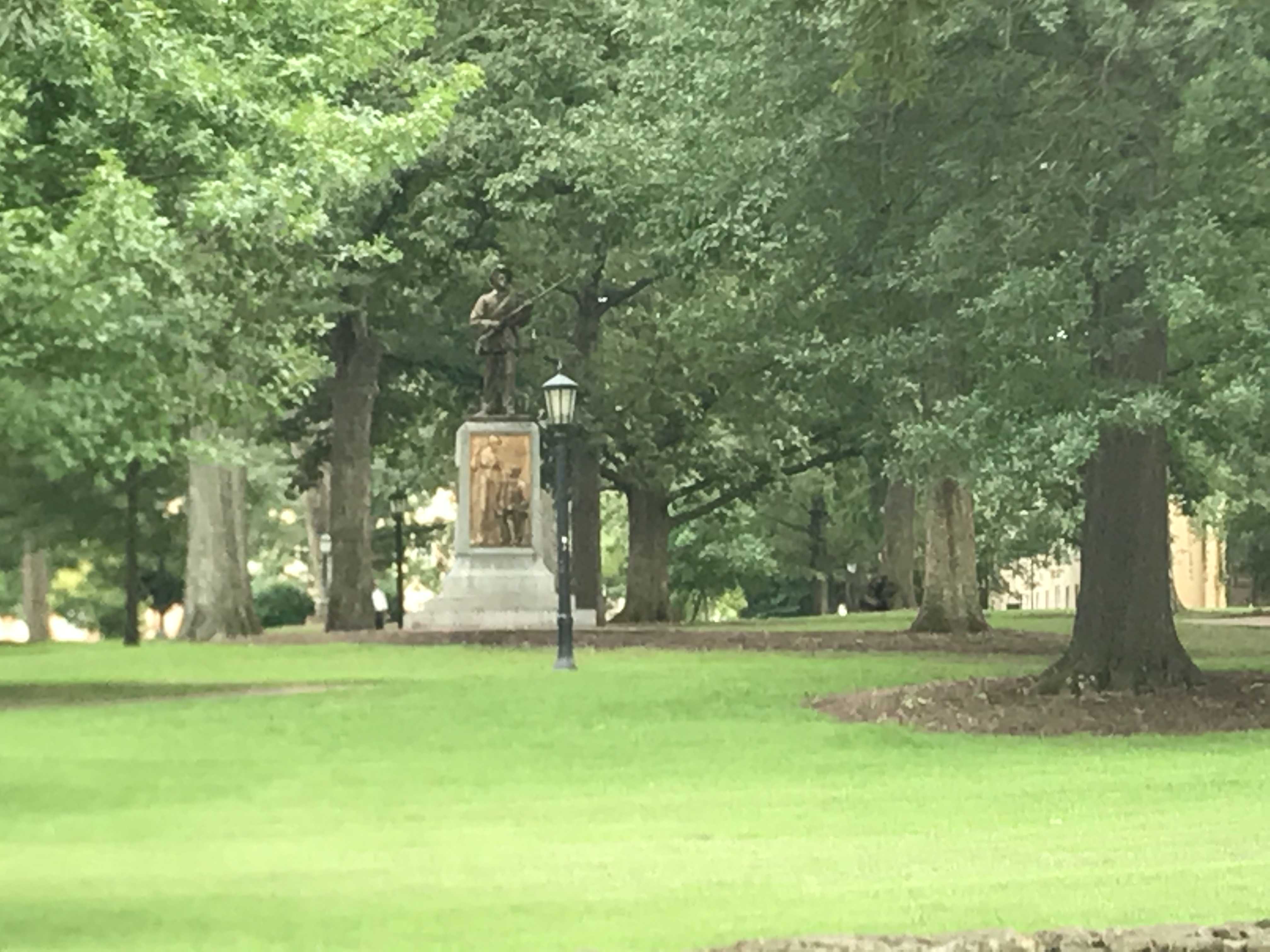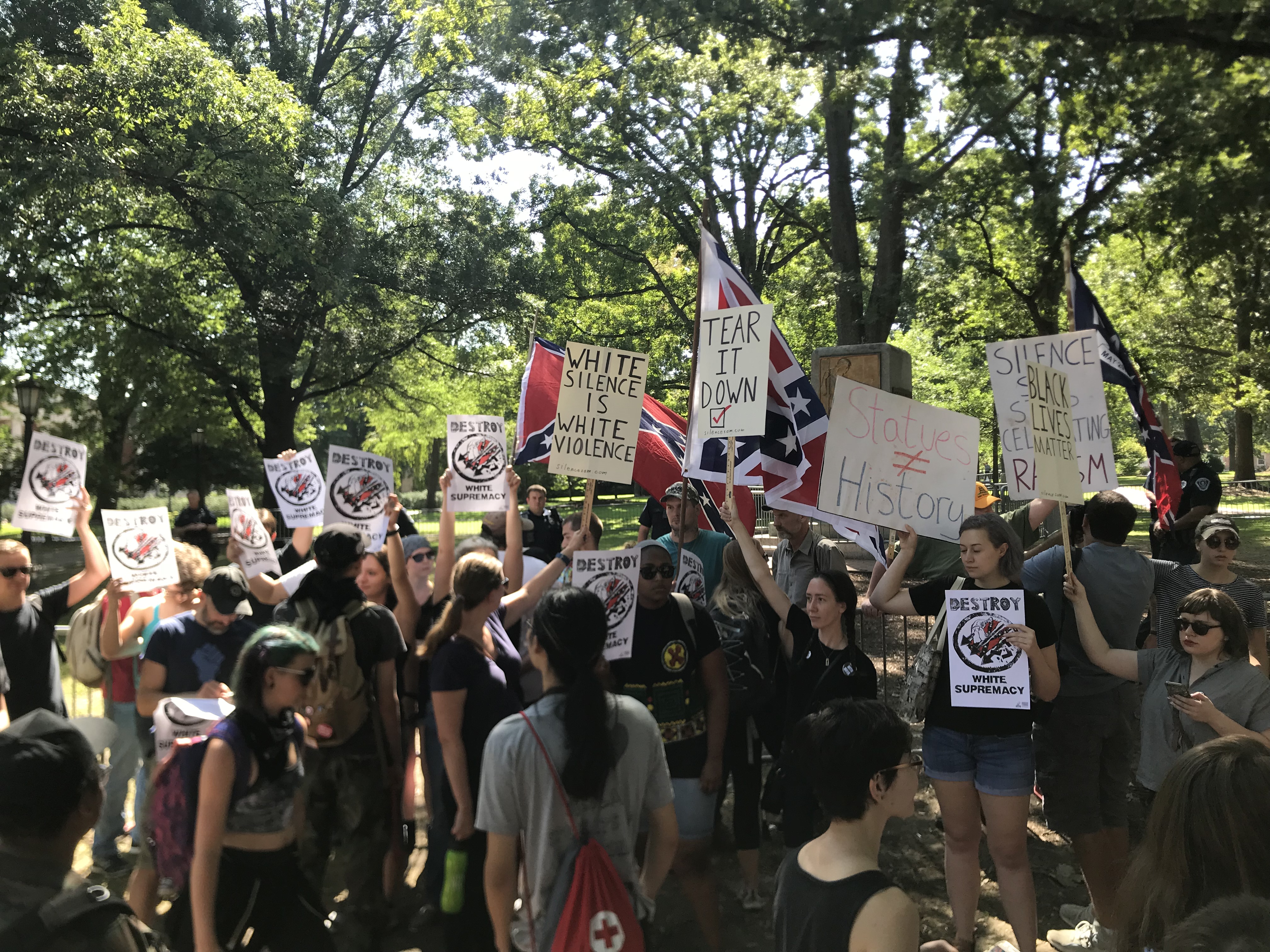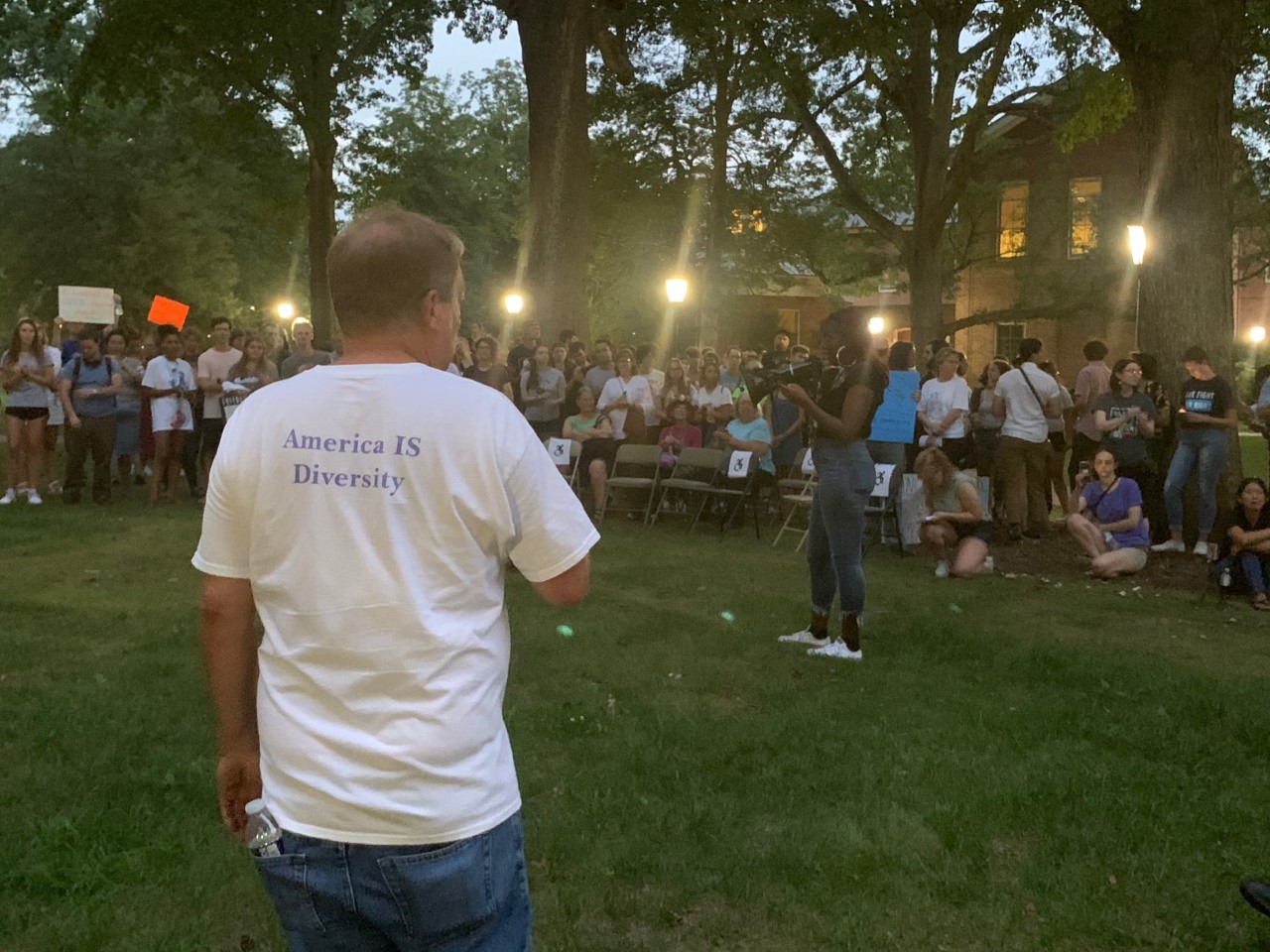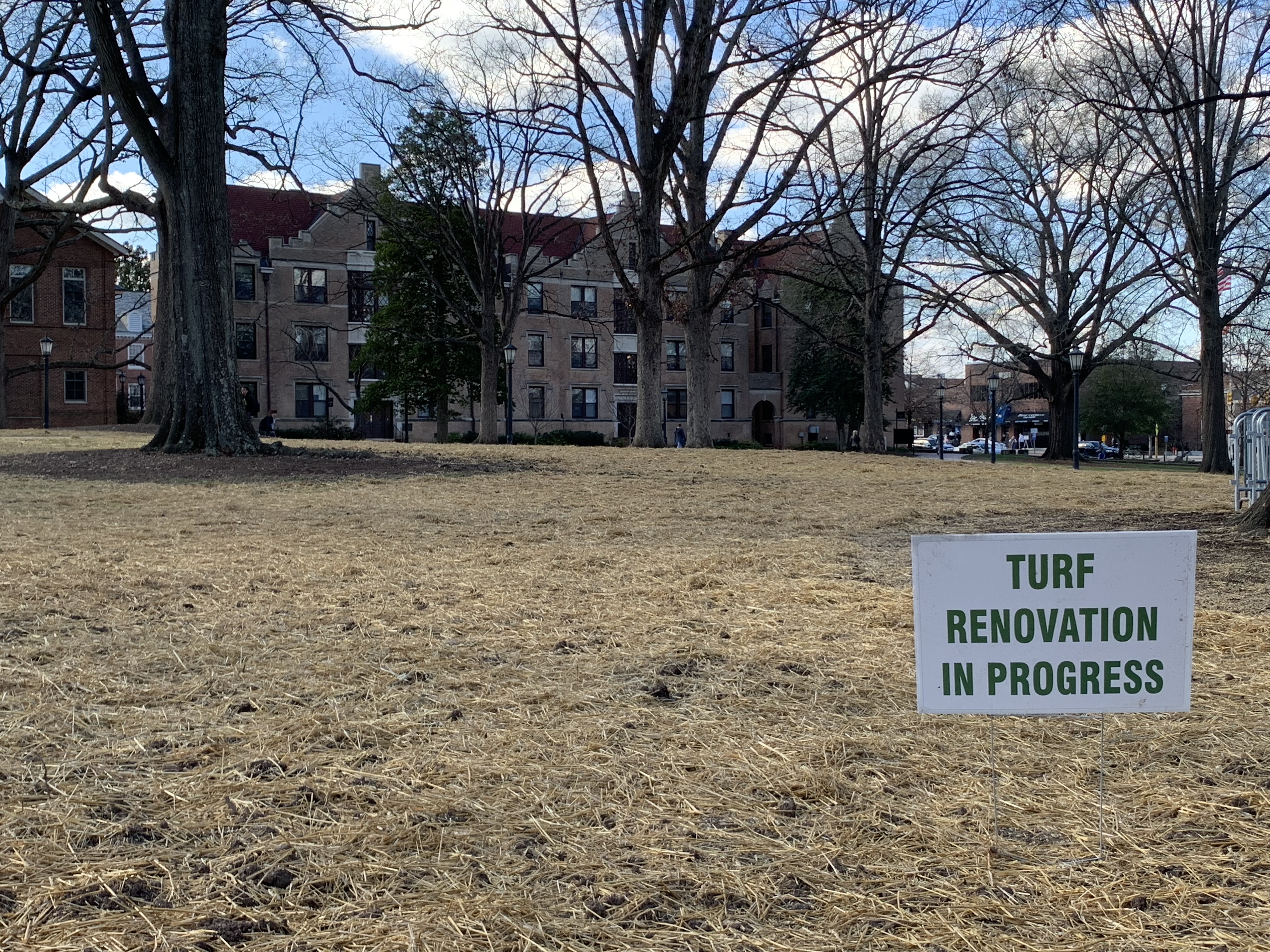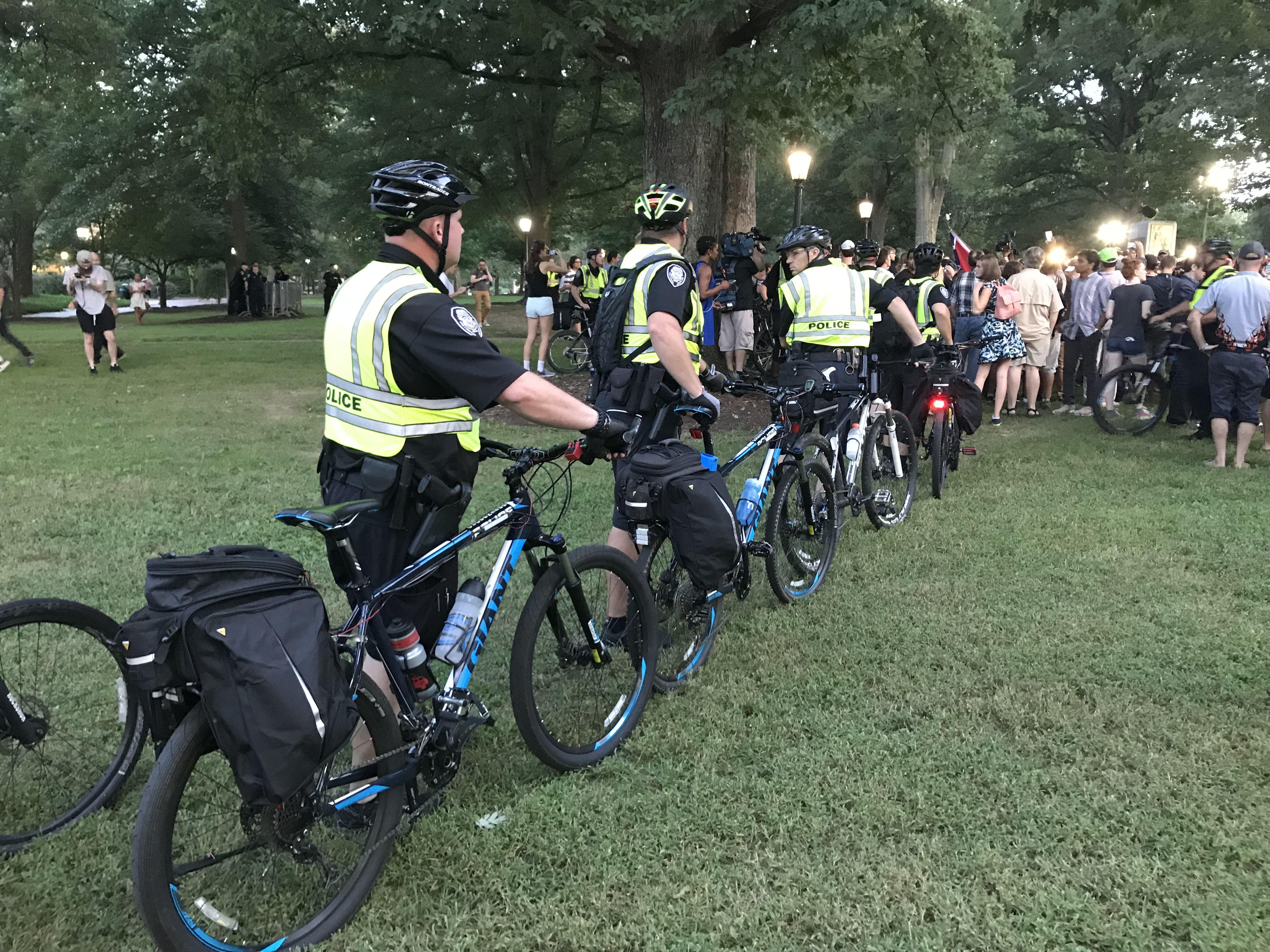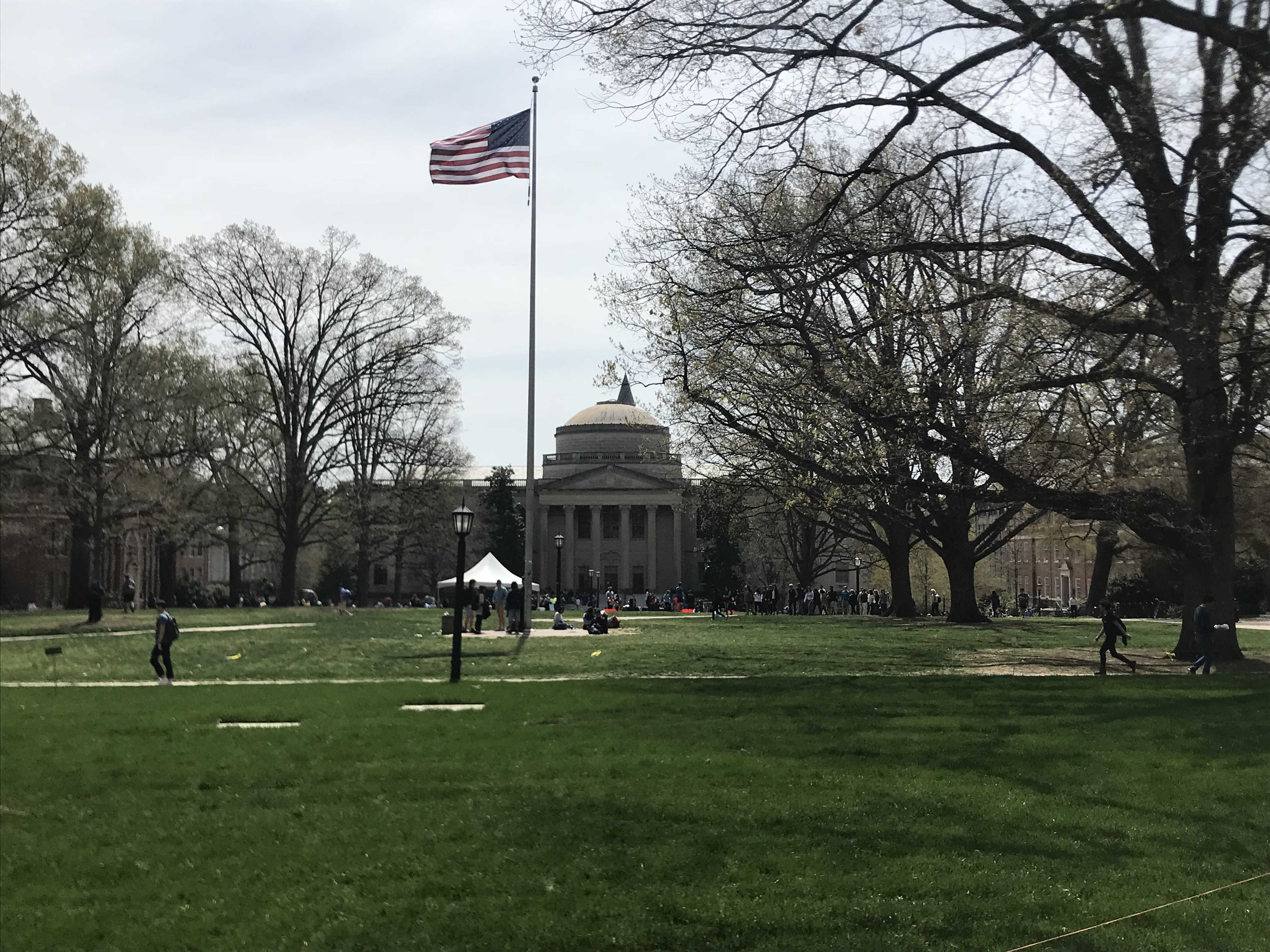The white supremacist rally in Charlottesville, Virginia, last weekend that resulted in the death of a counter protester has reignited the debate over Confederate monuments and their place in our society.
The “Unite the Right” rally was organized initially as a protest to the City of Charlottesville’s decision to remove these monuments.
Localities in North Carolina do not have that option thanks to a 2015 bill passed by the Republican-led General Assembly and signed into law by then-Governor Pat McCrory. McCrory was defeated in his re-election bid by the Democratic challenger Roy Cooper.
Cooper is now calling for the statues and monuments across North Carolina to come down, but it will not be as easy as issuing the directive.
In a video released this week, Cooper asked North Carolinians to avoid what happened in Durham, where protesters pulled down a Confederate monument in front of the old county courthouse.
“I understand the frustration of those fed up with the pace of change,” Cooper said. “But after protesters took down a monument in Durham, I said there was a better way.”
There have now been multiple arrests of those who allegedly participated in pulling the statue down in front of the old Durham County Courthouse.
Cooper’s “better way” relies on the North Carolina General Assembly repealing that 2015 legislation. Beyond that, Cooper said he has instructed his staff to look at the cost and logistics of removing those monuments. Cooper also asked that legislators kill a bill that would grant immunity in some circumstances to motorists who hit protesters with their vehicles. That bill passed the House this session but remains in a Senate committee.
Focus locally has been pointed toward Silent Sam. The memorial to UNC students who died fighting for the Confederacy stands in a prominent location on the university campus near Franklin Street. Silent Sam has been spray painted and blindfolded in recent years as students protested and asked for its removal.
As students are moving back to UNC for a new academic year, Chancellor Carol Folt addressed the “tragic and deplorable events” in Charlottesville in a message to the campus community.
Folt wrote that that the “scenes of violence, torch- and gun-bearing protesters, and people wearing KKK and Nazi symbols and shouting hateful slogans were terrifying and have no place on our campuses or in our society.
“At Carolina, diversity, inclusion and freedom of speech are at our core and truly living up to them can be difficult,” Folt continued.
In correspondence compiled and shared under Folt’s directive, senior university officials wrote to the campus community that while they “have faced questions about free speech and the Confederate Monument for years, the extreme provocation we witnessed last weekend presents a very different kind of threat.”
Officials said that they would “redouble” their commitment to ensuring the safety of those on campus while acknowledging the challenges presented by the “current environment.”
Addressing concerns that the campus may be a target of a controversial event, the letter says that the university is prohibited from “abridging the freedom of speech” by the First Amendment, while acknowledging that offensive and hateful speech is protected by a 1977 United States Supreme Court decision.
The extent of the university’s control may end with logistics, in being able to set “reasonable time, place, and manner restrictions.” The university does reserve the right to “prevent speakers from disrupting classrooms and work environments.”
UNC spokesperson Joanne Peters wrote in an e-mail to WCHL that she was not aware of “any scheduled speakers at this time akin to Charlottesville.”
A petition is on change.org asking the university to remove Silent Sam and other “relics of racism” the UNC campus.
The university Board of Trustees voted in 2015 to change the name of Saunders Hall to Carolina Hall. The building was previously named for Williams Saunders, who was a Secretary of State for North Carolina. Saunders was also credited as serving as a colonel for the Confederacy and as a leader in North Carolina’s Ku Klux Klan.
That 2015 decision from the board also implemented a 16-year moratorium on renaming buildings on campus.

